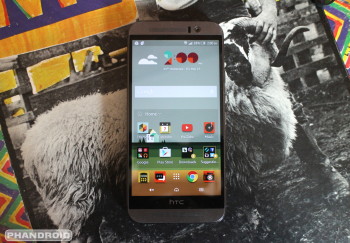Google was able to convince a couple of manufacturers to follow their example of providing monthly security updates for their smartphones, but not everyone was quick to jump on the train. HTC was one big name missing, which was odd considering the company is usually all about serving their customers the best way they can.
So, why haven’t they committed? The answer is simple according to Jason Mackenzie, president of HTC America: monthly security updates are unrealistic.
Before you jump down his throat, he said it in the context of the overall update infrastructure. It’s totally possible for them to develop and test monthly firmware updates which at minimum serve up critical security fixes. The problem, according to them, is that carriers’ testing and certification processes make it hard for them to keep promises.
And he has a point. HTC could “commit” to an update once every 30 days, but they’d have no say if a carrier wished not to push that update within the same time frame. At that point, their commitment becomes a broken promise, and that’s a whole other pot of beans they don’t want to have to deal with in a time where the company is already struggling to regain footing in the mobile market.
Jason Mackenzie went on to defend HTC’s software strategy, which he suggests leads the pack in terms of transparency and deliverance. Indeed, HTC has been among tops when it comes to quickly updating phones to the latest versions of Android, or simply providing maintenance updates for bug fixes and general improvements.
But, as we all know, fast updates are only ever guaranteed for unlocked international models. They can push to those devices whenever they want. It’s the carrier variants which are often held back, sometimes for months on end, while consumers wait in angst for the latest and greatest features.
Mackenzie has been a bit defensive about that last point as of late, too. The company — like a handful of others in recent times — started moving their core apps and features to Google Play, allowing them to update the apps with new features and bring new experiences without having to deal with carriers. But they can only do so much in that regard, and at the end of the day they’re at the mercy of the carriers to get folks loaded up with Lollipop, Marshmallow and the like.
It’s important to note that this doesn’t mean HTC doesn’t think critical security patches are important, they just feel it’s unrealistic to expect them on a monthly pace when carriers have such a big say in their distribution. He’s not alone in this matter either, with Motorola — who has perhaps been the most impressive OEM in terms of speedy updates as of late — also hesitant to jump onto the commitment train. Take that for what you will.













Comments